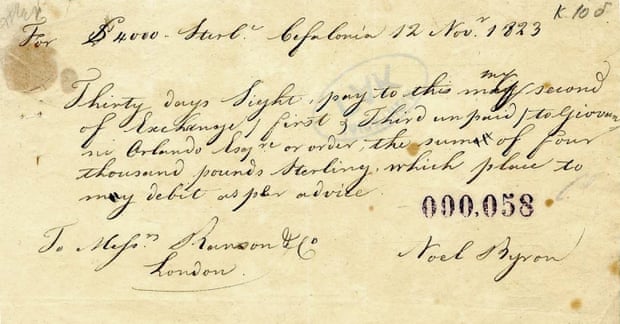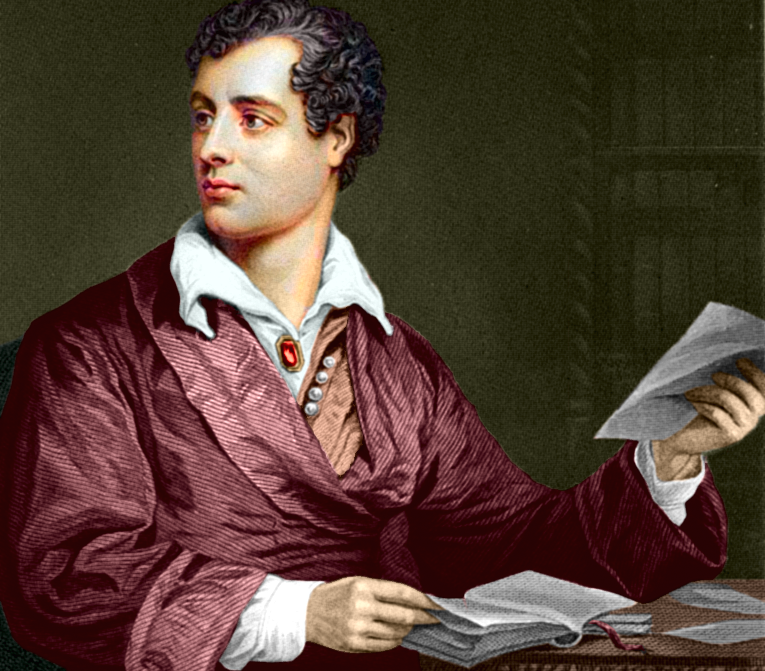A cheque recently unearthed by British paper, The Observer, sheds new light on Lord Byron‘s generosity and commitment to the Greek War of Independence.
In the cheque, Byron stipulates that £4,000 – roughly £332,000 today – be paid to Giovanni Orlando, a representative of the provisional government that, alarmed by the way the war was going, had approached the British for funds.
The money was to go towards emergency needs – notably financing a fleet to defend Missolonghi from besieging Ottoman Albanians. Both sides agreed it would be repaid against a much bigger loan to be raised in London where Orlando was headed.
Dr Christine Kenyon Jones, who studied many of the poet’s manuscripts, told The Observer that “because of his fame, Byron was much forged.”

“But it looks as if this is an original signature attached to the script of a clerk, which he seems to have impatiently corrected. Byron’s handwriting, like his personality, was fast and free, so there’s a contrast between the clerk’s careful hand and his own confident signature with its bold, open ‘B’ and characteristic flourish on the ‘n’.”
Ms Jones said it was extraordinary that the document should have lain unnoticed in Greece’s archives for so many years.
The cheque that helped create modern Greece:
From the outset, Byron used his fame to internationalise the Greeks’ fight for liberty, inspiring a motley crew of foreign Philhellenes to rally to the cause – both on and off the battlefield.
“Byron helped the revolution resolve itself in the way it did, creating what at the time would be a progressive… modern nation state,” Roderick Beaton, emeritus professor of Modern Greek studies at King’s College London, told The Observer.

But Byron’s willingness to part with such a large slice of his personal fortune also had an immediate impact – one that Mr Beaton believes helped change the course of events.
“His financial contribution was crucial,” said the academic whose book, Byron’s War, is regarded as the definitive account of the poet’s involvement in the revolution.
“No historian of the war has really paid attention to this fact but the Ottoman Albanian troops who were besieging Missolonghi suddenly disappeared as soon as word got out that Byron had lent this money and the fleet was sailing out of Hydra and Spetses.”
Byron’s loan, combined with a loan later raised in London, had the effect of “tipping the scales crucially in favour of the elected Greek government and against the warlords.”
Source: The Observer.

